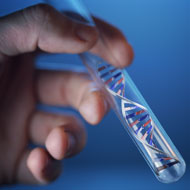
Research could save the global pig industry millions
Researchers have used gene editing technology to protect offspring from porcine reproductive and respiratory (PRRS) virus during reproduction.
A study by Kansas State University found that mothers without the CD163 protein are resistant to the PRRS virus and give birth to healthy, normal piglets. The work is published in the journal Scientific Reports.
“We have created a protective shell against the PRRS virus during the reproductive phase of production,” said Bob Rowland, professor of diagnostic medicine and pathobiology at Kansas State University. “The offspring does not become infected during pregnancy and is born a healthy piglet. During this critical phase of production, we have essentially ended a disease.”
PRRS brings about disease in two forms: a respiratory form that makes it more difficult for pigs to breathe and a more severe form that causes mass death in pigs during late pregnancy. Besides having an enormous economic impact, the latter can also have a huge psychological impact on people who work with pigs.
To address the devastating reproductive form of the virus, the researchers set out to create PRRS-resistant pigs. Using CRISPR/Cas9 gene editing technology, they found that pigs without the CD163 protein showed no signs or evidence of being infected with the PRRS virus. CD163 is the receptor for the virus.
The team hopes that the research could save the global pig industry millions because pigs are protected from the PRRS virus during the critical reproductive process. However, because piglets are born normal, they may still be susceptible to disease later in life.
"This is one tool that we can use," Rowland said. "It doesn't mean that we can give up on vaccines or diagnostics, but it does create more opportunities for other tools to become more effective. Because this pig is born healthy, it will respond better to a vaccine or a diagnostic test. We are enhancing other aspects of disease control as well."



 The Federation of Independent Veterinary Practices (FIVP) has announced a third season of its podcast, Practice Matters.
The Federation of Independent Veterinary Practices (FIVP) has announced a third season of its podcast, Practice Matters.